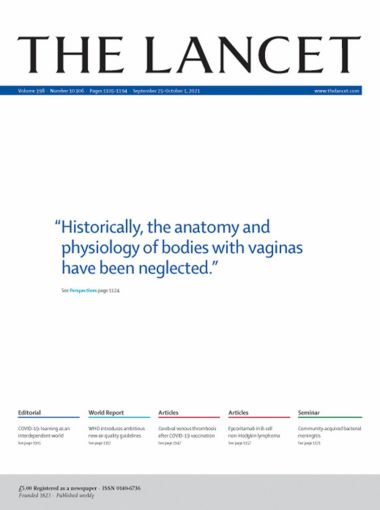The Lancet apologises over 'bodies with vaginas' cover

Prestigious medical journal The Lancet has apologised after replacing the term 'women' with "bodies with vaginas".
The words appeared on the front cover of the peer-reviewed journal for its September 25 edition.
They were an excerpt from an article in the September edition claiming that "the anatomy and physiology of bodies with vaginas have been neglected."
The journal came under fire for the choice of words, with black feminist writer Claire Heuchan asking why men were not referred to as "bodies with penises".
"Medical misogyny is exists - and refusing to acknowledge women perpetuates it," she said.
Retired psychiatrist David Curtis said the journal's credibility had been called into question.
"It's really difficult to imagine why any medical researcher would want to submit their paper to a Lancet journal when they are happy to refer to women on their front cover with language which would be considered inappropriate even in a red light district," he said on Twitter.
Writing for this website, evangelical apologist David Robertson accused The Lancet of "denying the humanity of human beings, by separating us from our bodies".
"Note this is not even people with vaginas. These are bodies," he said.
In a formal apology, The Lancet's editor in chief, Richard Horton, admitted the wording had "conveyed the impression that we have dehumanised and marginalised women."
"I apologise to our readers who were offended by the cover quote and the use of those same words in the review," he said.
"At the same time, I want to emphasise that transgender health is an important dimension of modern health care, but one that remains neglected."
He went on to defend the substance of the article as "a compelling call to empower women, together with non-binary, trans, and intersex people who have experienced menstruation, and to address the myths and taboos that surround menstruation."
"The review calls for greater efforts to overcome the lack of knowledge and stigma too often associated with menstruation," he continued.
"These are serious issues that demand serious actions. We encourage people to read the full review and support a growing movement against menstrual shame and period poverty."











